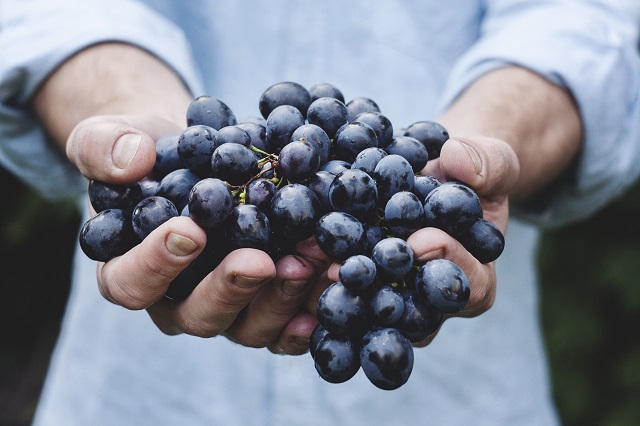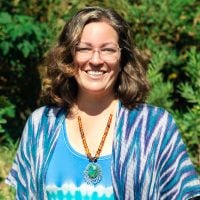
“We do not inherit the earth from our ancestors, we borrow it from our children.” ~ Wendell Berry
My life has changed remarkably over the past seven years.
Seven years ago, I was single and owned a home in south Austin, Texas that had electricity, indoor plumbing and central air and heating. I worked full-time at a public elementary school, drove a car almost every day and ate plenty of foods from bags, cans, boxes and frozen boxes—in other words, your typical middle-class American life.
Then I moved to Central America. I was 29, and once I got the idea into my mind, I was unstoppable. I landed a job at an international school and—voila—life transported me to Guatemala.
Four years ago, I moved from the city (Guate) to the lake (Atitlán) and fulfilled my destiny of becoming a country mouse. Life slowed down immediately. I moved in with my partner and lazed my way through the second trimester of pregnancy. It was summer vacation, and I was with child and happily in love. I’d only ever been madly in love before, and it had never lasted more than a few months. I’d never “lived with someone” before, other than my family and platonic roommates.
One year ago, the pace of my day-to-day life slowed down even more, when we moved across the lake to a tiny cabin in the woods. Suddenly we had no electricity, wifi, refrigerator, toaster oven or indoor bathroom. Our lives changed abruptly—by choice.
Here are the four radical, eco and logical ways our family has gone green:
1. We got off the grid. Our household is run by the sun. This means we’ve cut way back on our use of electrical and electronic items. We have enough power on a sunny day to enable working on my laptop for several hours, making a smoothie or hummus in the blender, charging our phones, listening to music and turning on a few lights at night.
In the rare case of a completely cloudy day, I go to a cafe in the nearby town to work. If we accidentally use up all our solar juice, we light candles at night. It’s kind of romantic.
“The use of solar energy has not been opened up because the oil industry does not own the sun.” ~ Ralph Nader, 1980
2. We separate our sh*t. By “sh*t” I am referring to literal poo, as well as trash produced through consumption of packaged goods.
Our bathroom is a baño seco—a dry composting toilet. The sh*t goes back to the earth, eventually in the form of compost that nourishes the plants. It does not flow untreated into the lake, which is important. Lake Atitlán is increasingly contaminated by raw sewage from the vast majority of residents and ever-present tourists—but not by us, nor any of our neighbors with composting toilets.
As for trash, not having a municipal pickup service has forced us into greater consciousness about our waste. Obviously, we compost organics: vegetable peels, any leftovers the dog refuses, coffee grinds. Easy enough. We avoid purchasing plastic-packaged goods as much as possible. The plastic trash we do create gets stuffed into plastic bottles until it’s packed so tight that the thing becomes an “eco-brick.” Millions of them have been used to construct walls and classrooms throughout rural Guatemala. Pretty awesome use of trash.
“Waste is a tax on the whole people.” ~ Albert W. Atwood
3. We eat fresh, healthy, natural food. Without electricity, we no longer have a fridge. Which means we buy fresh food more frequently. Any cheese, yogurt or milk we buy is consumed the same day. Eggs don’t need refrigeration, nor do most fruits and veggies. Not having refrigeration is really not a big deal for me now—yet, 10 years ago I was the proud purchaser of a big, black Frigidaire.
At first, I did miss being able to keep tofu, cold drinks and ice cream in the house, but now I have gotten used to it. These are now treats we get only when going out. We eat a lot less cheese than we used to too.
We humans are what and how we eat—the food and drink we ingest has a direct effect on our health, happiness and energy level. We eat mostly fresh, local, vegetarian foods.
Can you imagine life without a fridge? I challenge you to empty yours out and unplug it for a month. See how much your diet (and life) is altered.
“When we heal the earth, we heal ourselves.” ~ David Orr
4. We got rid of our car. This was a hard one for me, maybe the hardest. I love driving. I love the independence facilitated by a vehicle. I had owned a car almost nonstop since age 16, but I had to let it go. My ’93 Mitsubishi Lancer was not made for the rocky roads near our new house. We sold it.
Now we walk, bike or take a taxi to get around.
True, I live in a place and in a way in which a car is not needed. But, is it ever really necessary to have your own car? Or is it just a luxury we’ve become altogether too accustomed to?
“All in favor of conserving gasoline, please raise your right foot.” ~ Anonymous
As Gandhi said, “There is a sufficiency in the world for man’s need but not for man’s greed.” Being ecological is a way of actively healing ourselves and our planet. These changes in our awareness and actions don’t happen overnight, but they must happen—sooner rather than later.
What can you do to live in a more ecological way, starting today?
.
Author: Michelle Margaret Fajkus
Image: Unsplash/Maja Petric
Editors: Yoli Ramazzina; Caitlin Oriel


Read 22 comments and reply